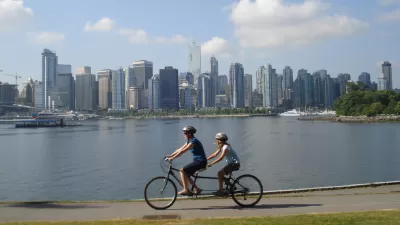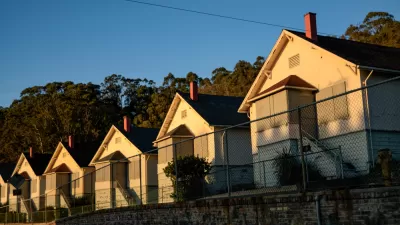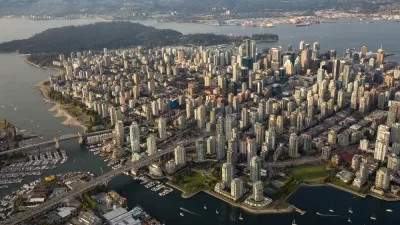The Vancouver Empty Homes Tax will soon be three times as high as it was when adopted in 2017.

"The empty homes tax in Vancouver will more than double next year," reports Alyse Kotyk. "Council voted in favour of increasing the tax from 1.25 per cent to three per cent for 2021."
The city adopted the tax in 2017 to control the cost of housing in the expensive city (along with a foreign buyer tax) by removing incentives for speculation, starting the tax originally at 1 percent, according to Kotyk.
Another article by Eric Zimmer details the results of the Empty Homes Tax on several key housing market metrics: "According to the city, there has been a 25% reduction in the number of vacant properties recorded between 2017 and 2019. Of the 1,989 properties declared vacant in 2018, 41% were converted to occupied status last year."
The Empty Homes Tax has also raised revenue for new affordable housing projects totaling $61.3 million, along with another $25 million for the 2019-2022 Community Housing Incentive Program, "which provides grants to non-profit housing operators to improve the affordability of social housing and co-op housing projects," according to Zimmer.
Another article by CBC News cites analysis by the Canada Mortgage and Housing Corporation that credits the tax with pushing 5,000condominiums to the rental market in 2019, including 3,000 units in Downtown Vancouver alone.
FULL STORY: Vancouver's empty home tax is increasing to 3% next year

Trump Administration Could Effectively End Housing Voucher Program
Federal officials are eyeing major cuts to the Section 8 program that helps millions of low-income households pay rent.

Planetizen Federal Action Tracker
A weekly monitor of how Trump’s orders and actions are impacting planners and planning in America.

The 120 Year Old Tiny Home Villages That Sheltered San Francisco’s Earthquake Refugees
More than a century ago, San Francisco mobilized to house thousands of residents displaced by the 1906 earthquake. Could their strategy offer a model for the present?

HSR Reaches Key Settlement in Northern California City
The state’s high-speed rail authority reached an agreement with Millbrae, a key city on the train’s proposed route to San Francisco.

Washington State Legislature Passes Parking Reform Bill
A bill that would limit parking requirements for new developments is headed to the governor’s desk.

Missouri Law Would Ban Protections for Housing Voucher Users
A state law seeks to overturn source-of-income discrimination bans passed by several Missouri cities.
Urban Design for Planners 1: Software Tools
This six-course series explores essential urban design concepts using open source software and equips planners with the tools they need to participate fully in the urban design process.
Planning for Universal Design
Learn the tools for implementing Universal Design in planning regulations.
Ada County Highway District
Clanton & Associates, Inc.
Jessamine County Fiscal Court
Institute for Housing and Urban Development Studies (IHS)
City of Grandview
Harvard GSD Executive Education
Toledo-Lucas County Plan Commissions
Salt Lake City
NYU Wagner Graduate School of Public Service




























